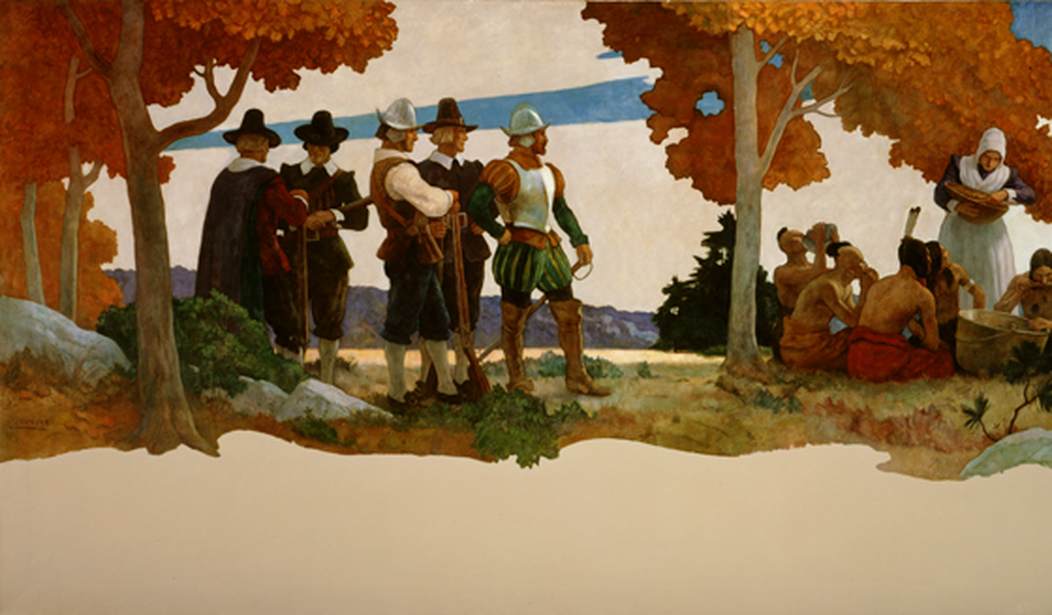Four hundred and one years ago this month, after being thrown off course in the Atlantic, the Mayflower’s 102 passengers made landfall at Cape Cod, well north of the Virginia territory where they hoped to settle. It was a setback, but it did not weaken the resolve of the Protestant Separatists, who came to create a community with true religious freedom.
After the Pilgrims’ leader, William Bradford, noticed discontent, he sought to keep the group united via the Mayflower Compact, which became the foundational stone of American democracy.
The short document created at Provincetown did not contain laws or governing plans for their new settlement, and yet the compact still established the first government in the New World based on voluntary consent.
The compact was “a civil body politick” with the power to elect leaders and “make just and equal laws, ordinances, acts, constitutions, and offices” for the good of the colony. Though signers professed loyalty to King James, they would rule themselves in America, not in London.
The 200 words underscored that the right of free people to govern themselves came from God, who is mentioned four times in the agreement. They noted their new government was undertaken “solemnly and mutually in the presence of God.”
But while the Mayflower Compact was religious in nature, it said nothing about a church and was not signed by clergy; it was signed by 41 men, almost the same amount who signed the Declaration of Independence.
Despite its brevity, the words encompass important themes of American democracy: that all men are created equal and endowed by their creator with basic rights and that government derives legitimacy from the consent of the governed.
Nearly two centuries later, speaking at Plymouth, Mass., John Quincy Adams claimed the compact was “perhaps, the only instance in human history of that positive, original social compact which speculative philosophers have imagined as the only legitimate source of government.”
The Mayflower Compact foreshadowed the foundations for the Declaration of Independence and the U.S. Constitution. But their birth was more than 150 years earlier as an intrepid group stepped ashore in a desolate New World.
Related: Misinformation and Revisionist History Rampant on Thanksgiving
The venerable holiday wasn’t observed nationally every year, however, until 1863 when, prompted by a letter from activist Sarah Josepha Hale, President Abraham Lincoln issued a Thanksgiving proclamation.
What makes Thanksgiving arguably the most cherished U.S. holiday is the tradition of joining loved ones in a holiday feast. Year after year, Americans sit down to turkey, stuffing, cranberry sauce, mashed potatoes, corn casserole, and much more.
AEI’s Chris Stirewalt wrote a nice piece this week about the day being the greatest American civic holiday.
“I love it for its simplicity. I love it for its emphasis on family and tradition. I love its time of year,” he explained. “But most of all, I love Thanksgiving for making explicit that gratitude is a necessary precondition for any real happiness—both for individuals and for nations.”
Nonetheless, a traditional Thanksgiving turkey dinner represents more than just a comforting meal. It symbolizes prosperity, freedom, and gratitude, especially toward the Pilgrims. And at the heart of Thanksgiving rituals is community. The holiday’s essence is the meal and gathering together, no matter the hurdles.









Join the conversation as a VIP Member